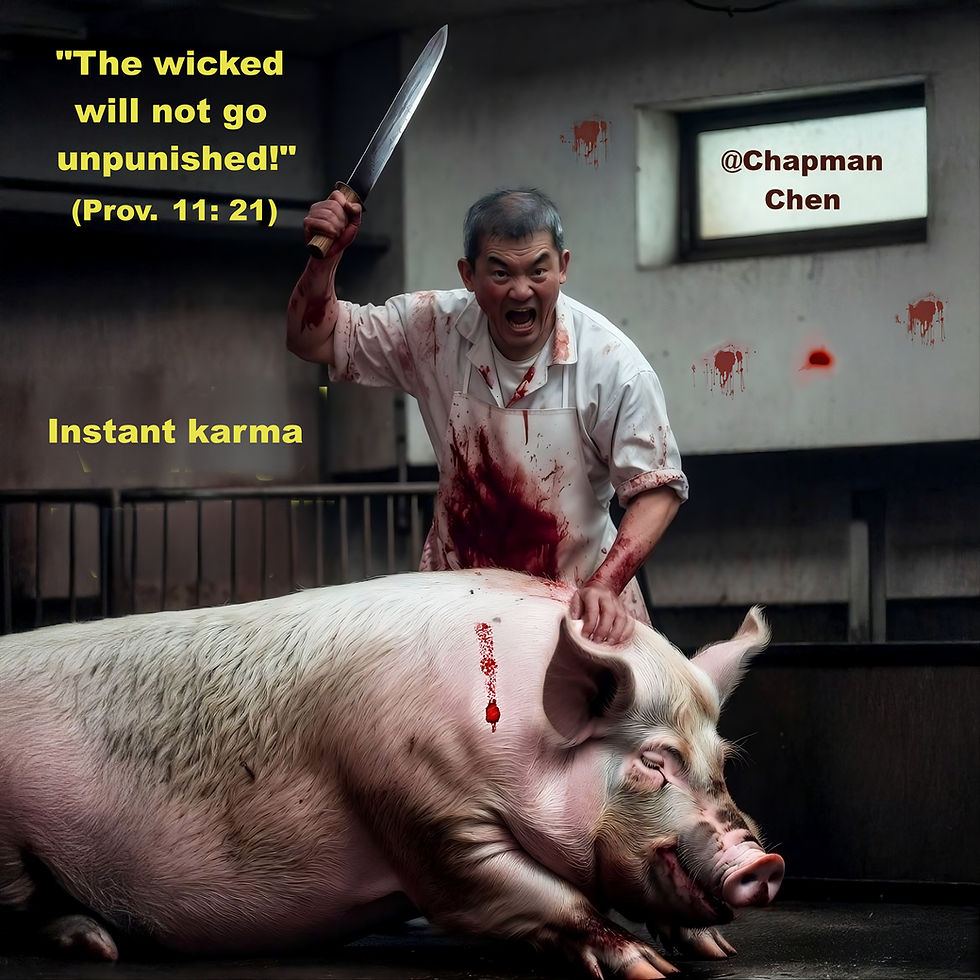“They Eat Up My People!” (Psalm 53:4). By Dr. Chapman Chen
- Chapman Chen

- May 30, 2025
- 2 min read

“Do all these evildoers know nothing? They devour my people as though eating bread; they never call on God.” (Psalm 53:4, NIV)
Psalm 53:4 presents a striking image of callous consumption—of people being “devoured” by evildoers with the same casualness as one eats bread. While traditionally interpreted as referring solely to the oppression of human beings, a deeper reading invites us to reflect on the broader category of “my people,” particularly in light of God’s inclusive compassion for all sentient creatures.
Throughout the Hebrew Scriptures, animals are not only part of God’s creation but are often treated as moral subjects, capable of suffering and worthy of divine care (cf. Psalm 36:6; Jonah 4:11). The expression “my people,” when spoken by God, can be interpreted to encompass all those whom God loves and defends—whether human or nonhuman—especially the vulnerable and voiceless. To “devour” such innocents, then, may metaphorically include the literal consumption of animals, who are among the most voiceless victims of systemic violence.
The phrase “they never call on God” adds a spiritual dimension to the indictment. These evildoers consume innocent creatures of God without spiritual reflection or questions of conscience, which reminds us of that notorious saying of Paul the anti-vegan apostate – “Eat anything sold in the meat market without raising questions of conscience (1 Cor. 10:25). Their acts are marked by moral ignorance or willful denial. Just as the eating of bread here symbolizes routine, normalized violence, the psalm critiques a culture of consumption divorced from compassion.
The broader context of Psalm 53 reinforces this theme: “Everyone has turned away, all have become corrupt” (v.3). The psalm laments a world in which moral sensitivity has eroded. It is a prophetic outcry against a society where domination replaces empathy, and the cries of the innocent—human and animal—go unheard.
Thus, Psalm 53:4, when viewed through the lens of divine justice and mercy, warns not only against interpersonal injustice but also against a way of life that commodifies and consumes the weak, treating them as bread to be eaten rather than beings to be cherished. It is a call to return to God—not only in prayer, but in reverent action toward all creation. #VeganChrist #VeganGod #VeganTheology #VeganChurch





Comments